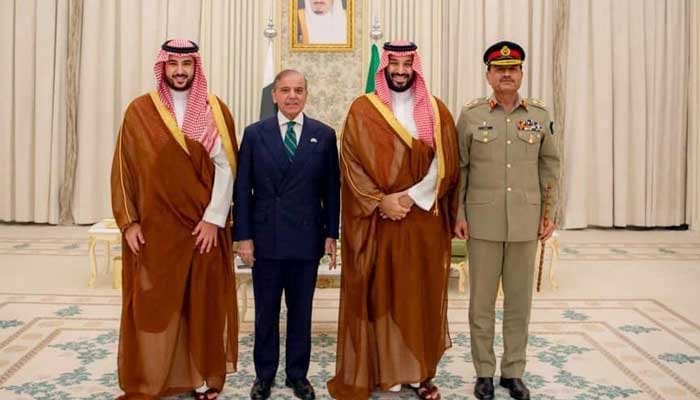Last week, as news of Israel’s strikes on Qatar reverberated, I recalled a late-night chat with a retired Pakistani diplomat in Islamabad, who warned that economic desperation often drives nations into risky alliances. On September 17, 2025, Prime Minister Shehbaz Sharif and Saudi Crown Prince Mohammed bin Salman signed a mutual defense pact in Riyadh, declaring that an attack on one is an attack on both, covering “all military means.” This agreement, far from routine, signals a strategic pivot with profound implications for both nations, their neighbors, and the broader geopolitical landscape.
For Pakistan, the pact strengthens deterrence and opens economic lifelines. Saudi Arabia’s financial clout could accelerate investments in energy and infrastructure, easing Pakistan’s chronic foreign exchange shortages. In return, Pakistan offers military expertise and, implicitly, its nuclear capabilities as a shield—a “nuclear umbrella” enhancing Saudi defenses against threats like Iran. Yet, the risks are steep. Pakistan could be drawn into Middle Eastern conflicts, stretching its military, while nuclear proliferation fears might trigger sanctions, isolating Islamabad further. Saudi Arabia gains a reliable ally to diversify beyond U.S. dependence, but it risks escalating tensions with Iran and complicating non-proliferation efforts, potentially alienating Western partners.
The agreement strains Saudi Arabia’s delicate ties with Israel. While Riyadh has edged toward normalization via the Abraham Accords, aligning with nuclear-armed Pakistan—especially after Israel’s Qatar strikes—introduces friction. Israeli officials worry it brings a nuclear player into the region, even symbolically. As one analyst noted, “It’s not a direct threat, but it clouds Saudi-Israeli rapprochement.” This could stall projects like the IMEC corridor, reliant on stable Gulf-South Asia ties.
For India, the pact is unsettling, boosting Pakistan’s clout in the Islamic world and potentially emboldening it along the Line of Control. New Delhi, a key Saudi oil buyer, fears indirect nuclear implications in South Asia, especially after the May 2025 Indo-Pak skirmish. However, India’s robust ties with Saudi Arabia, including defense deals, provide a buffer, and oil flows are unlikely to be disrupted. Still, it complicates India’s Gulf balancing act, demanding closer scrutiny of regional alliances.
Economically, the pact could be a lifeline for Pakistan. Building on last December’s $3 billion Saudi loan, it may unlock further investments, stabilizing the rupee and funding military upgrades. Yet, dependency on Saudi aid carries risks—if Riyadh faces its own crises, Pakistan’s economy could suffer. For the average Pakistani in Lahore or Karachi, benefits depend on economic trickle-down. Saudi-backed projects could create jobs and boost remittances from workers in the Kingdom, but past alliances suggest grassroots prosperity isn’t guaranteed. War risks could also drive inflation and insecurity, overshadowing gains.
This pact is like Pakistan stepping into a high-stakes chess game with Saudi backing: powerful for deterrence, perilous for escalation. It demands careful diplomacy—perhaps multilateral talks involving India and Iran—to harness opportunities while avoiding conflict. Without such efforts, this bold move risks igniting the very tensions it aims to contain.


